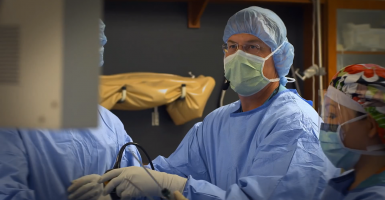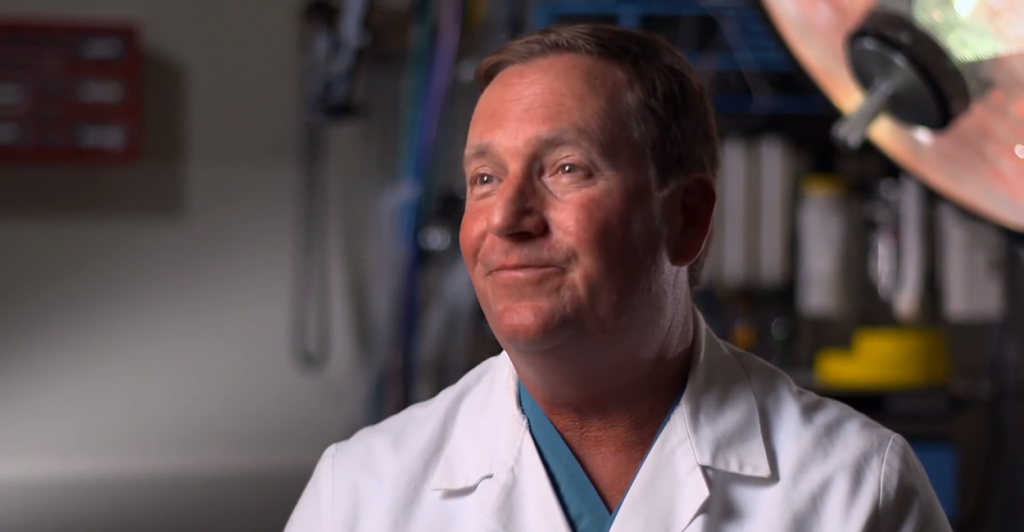There’s a cost-cutting revolution going on in American health care.
Anesthesiologist and co-founder of the Surgery Center of Oklahoma, a physician-owned ambulatory surgery center, Dr. Keith Smith is at the epicenter of that revolution.
In a recent presentation to George Washington University medical students, Smith emphasized that health care costs are rising at unacceptable rates because of market distortions rooted in government intervention and the opaque pricing that accompanies third party payment.
Smith posts prices online for his practice. His center provides care priced at one-tenth to one-fifth of what neighboring facilities bill.
When Americans purchase anything other than health care, they factor in both cost and quality. For example, no one would spend 10 times more for the same quality cellphone or plumber available for less. But in health care, that kind of irrational purchasing is routine. This lack of free market forces results in waste and inefficiency among health care professionals and institutions.
Smith says that by cutting extra layers that increase cost—including administrators, bureaucracies, and public and private third party payment systems—medical professionals can deliver efficient, high quality care at a reasonable price.
Smith has put his money where his mouth is: he posts prices online for his practice. It quickly became clear that Smith’s surgery center provided care priced at one-tenth to one-fifth of what neighboring facilities bill while providing at least the same level of quality.
Consider the growing phenomenon of Direct Primary Care, which, like Smith’s center, shows the advantages of a patient knowing prices. Instead of going through the bureaucratic apparatus of an insurance claims processing system, the patient pays the doctor directly without any additional administrative costs. This simple payment alternative allows a physician to treat patients at a relatively low price without third party interference. Direct primary care practices, can deliver high quality healthcare at a low transparent price.
Curiously, the Affordable Care Act may accelerate reduced reliance on third party financing. Given the substantially high insurance deductibles and premiums in the Obamacare exchanges, more and more Americans will wonder what they are getting for their money.
In fact, Smith says patients with Obamacare plans are now seeking care at his facility. With increased demand, these new health care delivery models could provide a real alternative to the inefficient, costly care provided at many health care facilities nationwide. However, a provision in Obamacare has created an obstacle to the growth of physician-owned hospitals by prohibiting future physician investment and capping existing physician investment in hospitals.
Policymakers at the federal and state levels should focus on ways to expand patient choice and provider competition by removing obstacles to Direct Primary Care practices. Michigan, for example, has done just that.
Meanwhile, as Smith noted, patients have successfully negotiated lower surgical prices at their local hospitals by using a printout of the Surgery Center of Oklahoma’s prices as a bargaining tool. With public policies that make healthcare more competitive, innovative physicians and entrepreneurs could pioneer a new era of abundant, affordable high quality health care for millions of Americans.





























